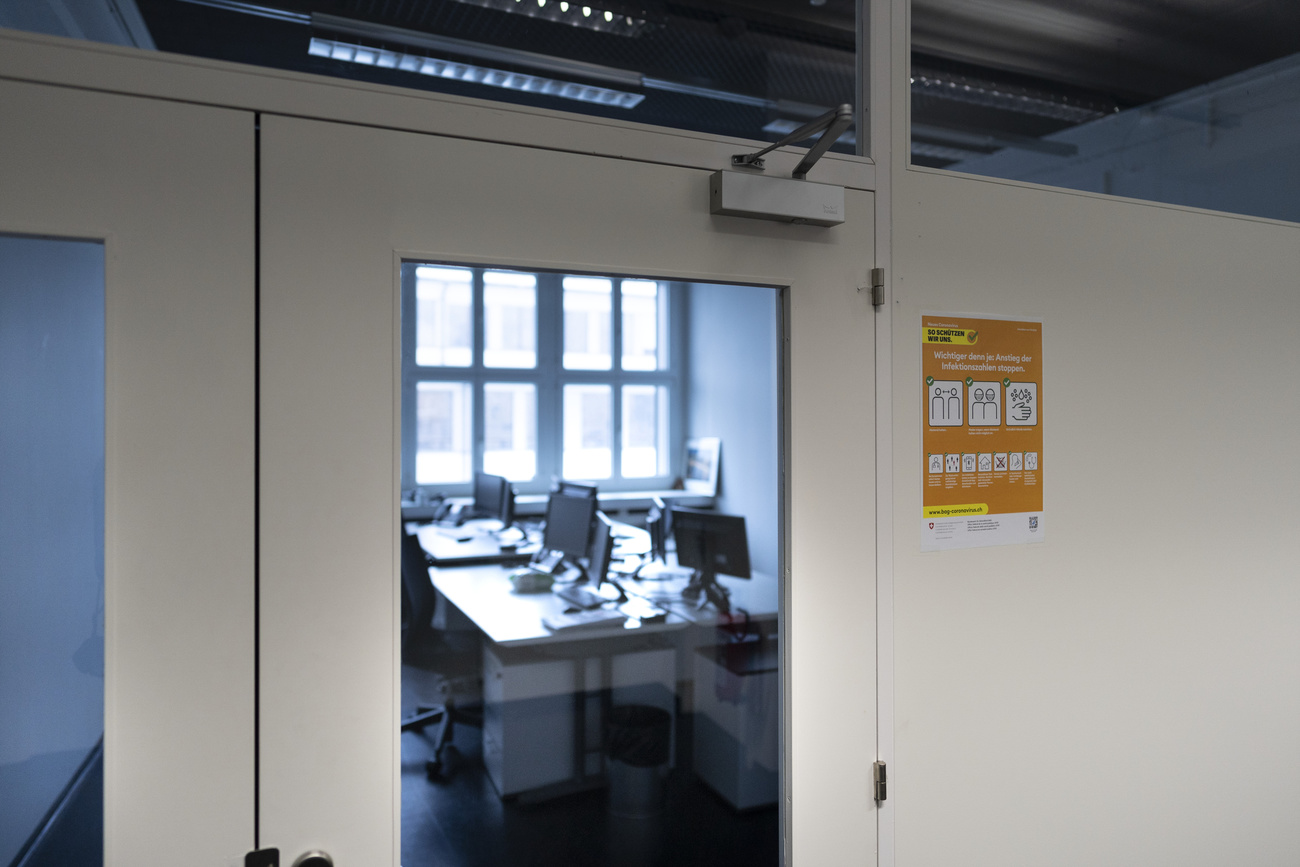
Swiss look into effects of delayed Pfizer vaccine deliveries

Pfizer-BioNTech has temporarily slowed shipments of its coronavirus vaccine to Europe. The Swiss health authorities say they are looking into the consequences for Switzerland.
Several European Union countries have saidExternal link that they are receiving fewer doses for the Pfizer-BioNTech vaccine. In a statement on FridayExternal link, Pfizer confirmed shipments were being affected by changes to its manufacturing processes designed to boost production.
As a result, there would be “a temporary reduction in the number of doses delivered in the upcoming week. We will be back to the original schedule of deliveries to the European Union beginning the week of January 25, with increased delivery beginning week of February 15.”
The company said it would deliver the fully committed quantity of vaccine doses in the first quarter and significantly more in the second quarter.
Swiss reaction
Asked for its reaction to the temporary delay, the Swiss Federal Office of Public Health (FOPH) said on Friday night: “We are taking the new of the supply bottleneck seriously and are looking into the consequences for Switzerland”.
The Swiss government knew from the beginning that the global shortage in vaccine supply would be a challenge, which is why it is following a diversified strategy, the FOPH told several news outlets. “The government is backing several vaccine manufacturers and different vaccine technologies because Covid-19 vaccine development and supply includes many uncertainties,” FOPH spokeswoman Maria Foursova told Swiss public television SRF.External link
National strategy
In total, Switzerland has ordered 15.8 million vaccine shots for its population of 8.6 million: 3 million from Pfizer/BioNTech, 7.5 million from Moderna and 5.3 million from Oxford/AstraZeneca.
Last Tuesday, the health regulator Swissmedic gave the green light for the ‘immediate’ use of the vaccine produced by US company Moderna. It is the second vaccine to be approved in the country after Pfizer/BioNTech’s was cleared for use on December 20. The Pfizer/BioNTech vaccine has already been administered in Switzerland and a further delivery is expected January 18.
The Oxford/AstraZeneca vaccine is awaiting regulatory approval, although the NZZ newspaper reported on SaturdayExternal link this could happen as early as this month, citing unnamed sources.
Ministers vaccinated
It has also been confirmed by government spokesman André Simonazzi that some Swiss government ministers have already received coronavirus vaccinations. But he would not reveal to Keystone-SDA which ministers had received the shot. He said the jab was being administered according to the government’s vaccination strategy and in relation to the job requirements of members of the government.
More than 60,000 people in Switzerland have been vaccinated against Covid-19 since late December. The plan is to vaccinate six million people by summer.
During an online meeting on Saturday, Swiss Health Minister Alain Berset and the cantons – who are in charge of health matters in Switzerland and are responsible for carrying out the vaccinations – have agreed that the “rhythm” of the vaccinations needed to be faster, news agencies reported.

More
Poll: Swiss counting on vaccines to lift them out of the pandemic

In compliance with the JTI standards
More: SWI swissinfo.ch certified by the Journalism Trust Initiative





























You can find an overview of ongoing debates with our journalists here . Please join us!
If you want to start a conversation about a topic raised in this article or want to report factual errors, email us at english@swissinfo.ch.